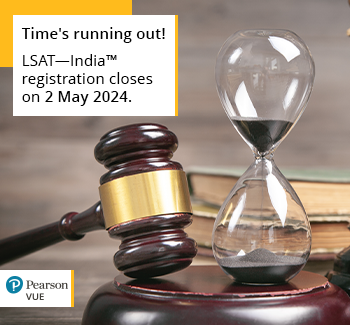Important Topics for DU JAT Preparation- Quantitative Aptitude, Reasoning & Analytical Ability, General English and Business & General Awareness

In exams like the Delhi University Joint Aptitude Test or more commonly known as DU JAT, students have to learn every bit of information in the books or they can choose to focus on the topics that matter the most. Knowledge of section-wise important topics for DU JAT is necessary for good results. So, we have compiled a list of all important topics students can expect in the DU JAT Paper with the help of the 2020 Paper Analysis.
Students must prepare smartly along with hard work. Here below there are Important Topics listed for DU JAT Preparation in each section namely Quantitative Aptitude, Reasoning & Analytical Ability, General English, and Business & General Awareness respectively:
Keep Knowledge of all Important Topics for DU JAT Preparation:
DU JAT Syllabus (Important Topics)
|
Quantitative Aptitude |
Probability, quadratic equations, trigonometry, time and work partnership, areas |
|
Reasoning & Analytical Ability |
Verbal analogy, Word sequence, Terms and prepositions, Direction and distance, Verbal reasoning |
|
General English |
Grammar, Synonyms, and antonyms, vocabulary, word formation, One-word substitution, Pairing of words. |
|
Business & General Awareness |
Geography, Economics, General History, Politics, Current affairs, Science, Computers. |
DU JAT Weightage of Topics for Quantitative Aptitude
The Quant section tests the numerical ability of an individual. The DU JAT Syllabus for quant is vast, hence you need to prepare smartly.
Solve DU JAT Previous Year Papers to know the difficulty level of the question paper and estimate the different types of questions.
Considering the previous year's analysis, the weightage of quant topics is explained below.
|
Topics |
Weightage |
|
Geometry |
4 |
|
Sequence |
1 |
|
Probability |
2 |
|
Trigonometry |
2 |
|
Coordinate Geometry |
1 |
|
Matrices and Determinants |
2 |
|
Integration |
1 |
|
Functions |
2 |
|
Differentiation |
4 |
|
Statistics |
1 |
|
Time and Work |
1 |
|
Series |
1 |
|
Vectors |
3 |
DU JAT Reasoning Topics Weightage
Here is a list of important reasoning topics along with the number of questions asked in the past years exams.
|
Topics |
Weightage |
|
Arrangement |
10 |
|
Comparison |
2 |
|
Series |
4 |
|
Coding |
2 |
|
Analogy |
3 |
|
Direction |
1 |
|
Syllogism |
1 |
|
Cube |
1 |
DU JAT English Topics Weightage
Each year, there are a different number of questions asked from each topic. One year, the question paper may include few topics which are not repeated next year. So, try to practice each topic and be prepared.
|
Topics |
Weightage |
|
Reading Comprehension |
5 |
|
Spelling |
4 |
|
Synonyms |
8 |
|
Fill in the blanks |
1 |
|
Idiom and Phrases |
7 |
DU JAT Weightage of General Awareness
In General Awareness, the topics are divided into two categories: Static and General Knowledge. You need to practice for all topics under both sections to score good marks.
|
Topics |
Weightage |
|
Static GK |
16 |
|
Current Affairs |
8 |
*Please Note: The above estimation of a number of questions is based upon the number of questions asked from each Topic in DU JAT in previous years.
More significantly, students should read the syllabus thoroughly and it will help them gain valuable insights into the important chapters, topics, marking scheme, course objectives, and more. Furthermore, getting a complete overview of the syllabus will be helpful to develop a well-defined preparation strategy for the exam. Candidates can check the Syllabus here: https://educereindia.com/exam/duet
DU JAT Eligibility Criteria 2021: The DU JAT Eligibility Criteria 2021 is necessary for students to read before doing registration for the examination.
The Eligibility Criteria is important for any examination because even if a candidate does not fulfill a single criterion of the eligibility criteria declared for the examination then the candidate is not allowed to appear for the examination or even after appearing for the examination and clearing the same the admission through the examination stands canceled or void.
The DU JAT Eligibility Criteria 2021 in detail are as follows:
|
Age Limit |
There is no age limit |
|
Citizenship |
The candidate must be an Indian |
|
Qualification |
Candidate must be appearing or should have passed class 12th or equivalent from any recognized board |
DU JAT Eligibility Criteria for the UG courses in detail are as follows:
|
Courses |
Eligibility Criteria |
Basis of Selection |
|
B.A. (Hons.) Business Economics
Bachelor in Management Studies (BMS)
Bachelor of Business Administration (Financial Investment Analysis) (BBA(FIA)) |
|
|
|
B.Tech. (Information Technology and Mathematical Innovation) |
|
|
|
B.A. Hons. (Humanities and Social Sciences) |
|
|
|
Bachelor of Elementary Education (B.El.Ed.) |
OR
|
|
|
Bachelor of Arts (Hons.) in Multimedia and Mass Communication |
|
|
|
Five Year Integrated Course in Journalism |
|
|
|
B.A. (Hons.) in Hindustani Music: Vocal/ Instrumental (Sitar/ Sarod/ Guitar/ Violin/ Santoor);
B.A. (Hons.) in Karnatak Music- Vocal/ Instrumental (Veena/ Violin)
B.A.(Hons.) in Hindustani Music: Percussion (Tabla/ Pakhawaj) |
OR
|
|
DU JAT Exam Pattern:
Students must remember that the preparation strategy is different than the IPM AT and JIPMAT as DU JAT requires speed and problem solving skills. The DU JAT Exam Pattern is important to read for every student who wishes to appear for it.
The DU JAT Exam Pattern in brief:
|
Particulars |
Details |
|
Mode of Examination |
Computer Based Test (CBT) |
|
Exam Duration |
2 hours |
|
Type of Question |
MCQ’s |
|
Total No. of Questions |
100 questions |
|
Total Marks |
400 marks |
|
Marking Scheme |
+4 for every correct answer -1 for each wrong answer |
|
Language of Paper |
English only (Language courses may have exception) |
DU JAT Exam Pattern in detail:
|
Courses |
Total No. of Question |
Topics |
|
B.A. (Hons.) Business Economics
Bachelor in Management Studies (BMS)
Bachelor of Business Administration (Financial Investment Analysis) (BBA(FIA))
|
100 |
|
As per DU JAT Exam Pattern, the selection exam is conducted in online mode. The DU JAT Exam is conducted tentatively in the month of June or July. But due to the Covid-19 Pandemic this could be delayed further.
There are a total of 100 questions asked in the exam and from each section 25 questions will be asked. The time duration of the exam is 2 hours.
|
DU JAT 2021 Exam Sections |
Number of Questions |
Total Marks |
Time Duration |
|
Quantitative Ability |
25 |
100 |
2 Hours |
|
Reasoning and Analytical Ability |
25 |
100 |
|
|
General English |
25 |
100 |
|
|
Business and General Awareness |
25 |
100 |
|
|
Total Questions |
100 |
400 |
2 Hours |
DU JAT Marking Scheme
The DU JAT Question paper is conducted for a total of 400 marks. There are a total of 100 questions in the exam and from each section 25 questions will be asked. Each question carries equal marks in all the sections.
|
Question |
Marks |
|
Correct Answer |
+4 Marks |
|
Wrong Answer |
-1 Mark |
|
Un-attempted Question |
No Mark |
About Author

Ojasvi Gupta
Ojasvi Gupta has worked for the Indian Express and Enactus DSC as a writer. Currently pursuing BCom Hons from Delhi University, she loves to spend her free time listening to music, reading, or playing with her dog. With her strong inclination towards writing, she serves as an author for Educere India.







